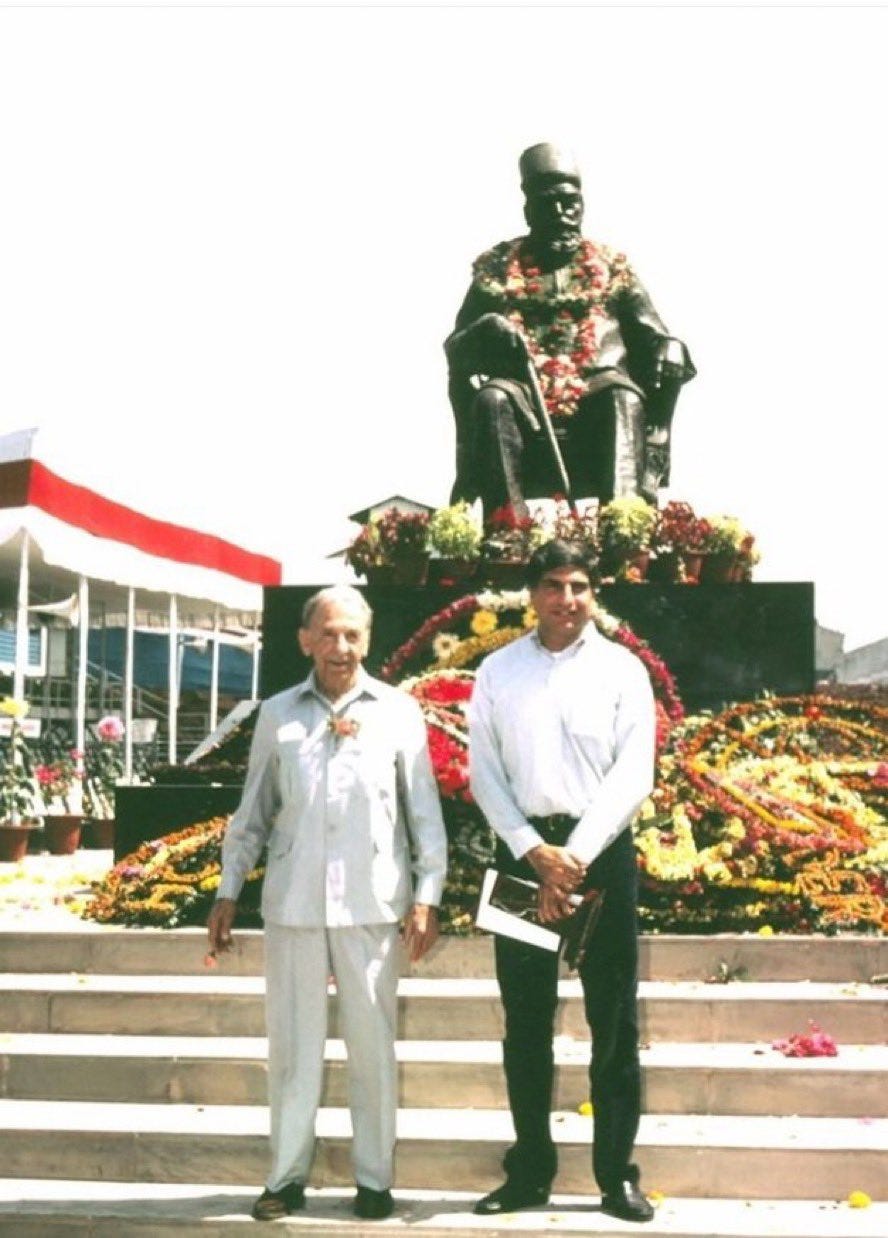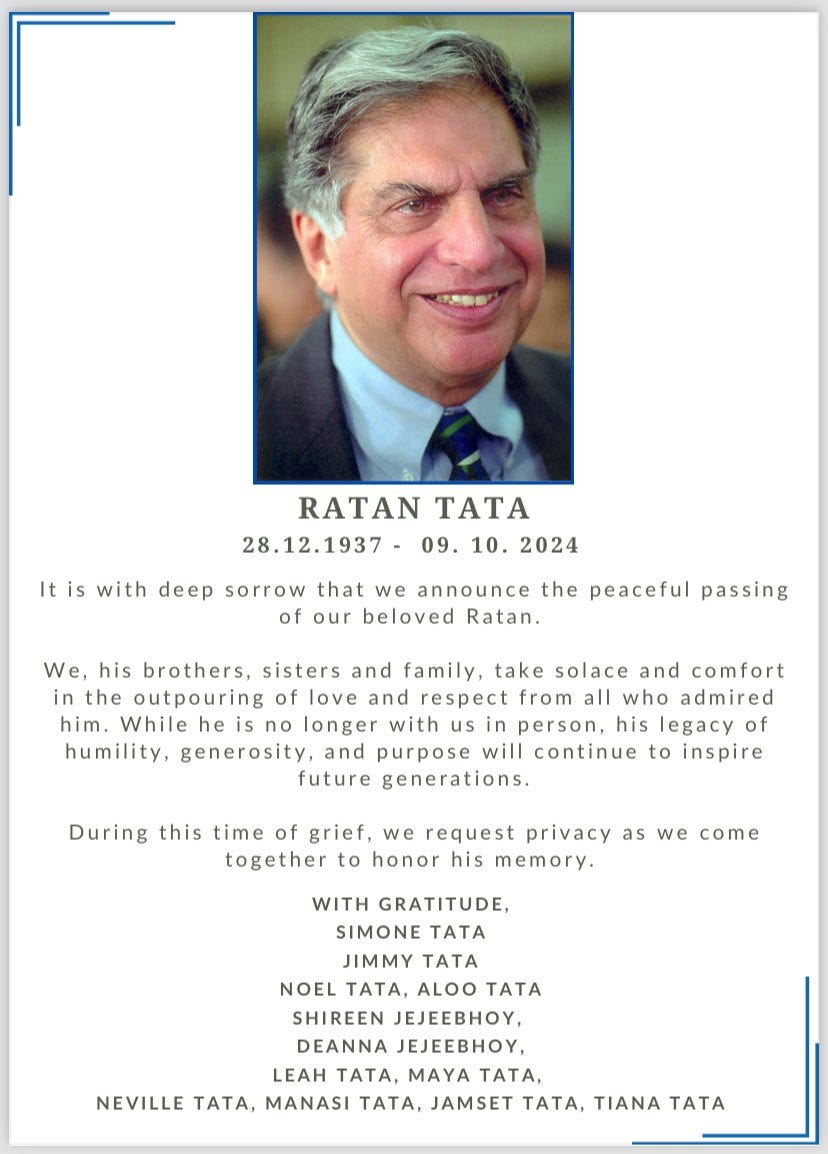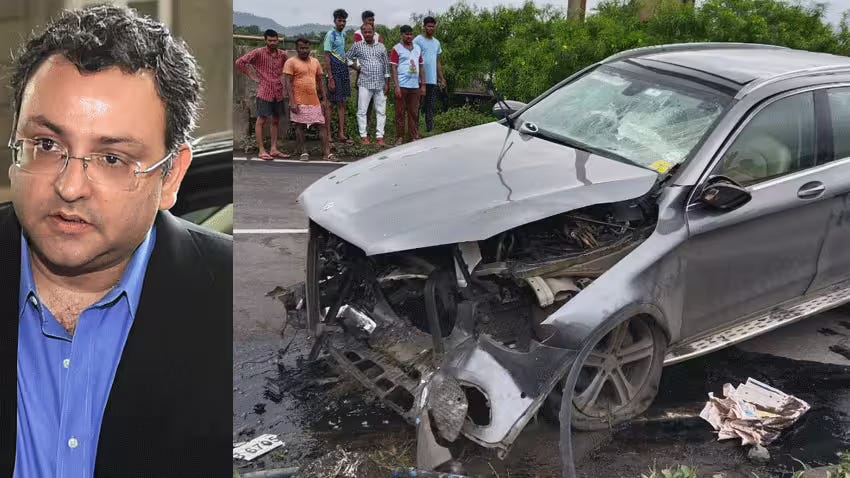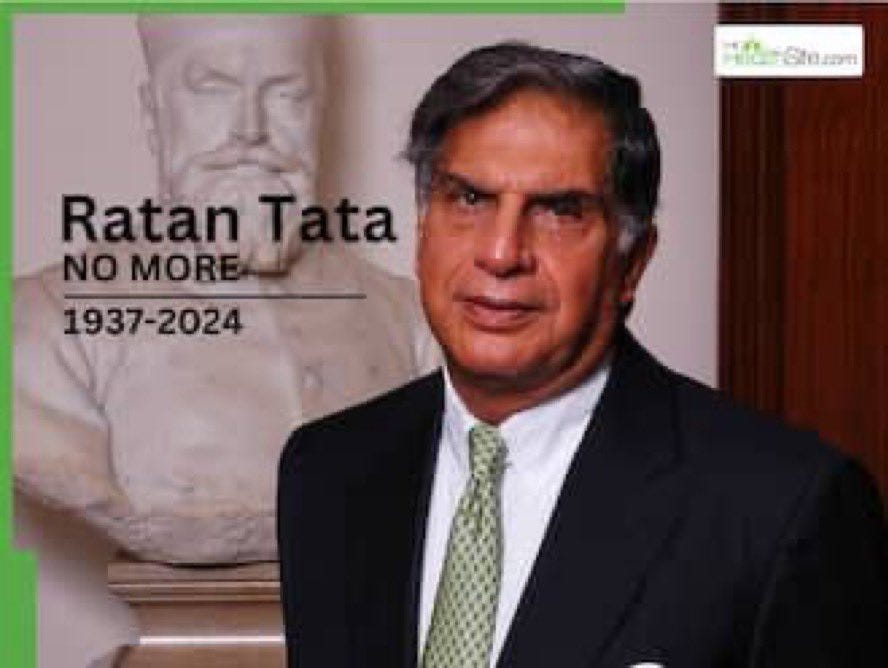Ratan Tata: Nerves of Steel Beneath a Suave Exterior
Ratan Tata: Nerves of Steel Beneath a Suave Exterior
Ratan Tata, the iconic industrialist and philanthropist who transformed the Tata Group into a global powerhouse, passed away at the age of 86, leaving behind an unparalleled legacy in Indian business and society. His visionary leadership saw the Tata Group’s revenues grow over 40 times during his tenure, expanding the conglomerate’s influence across diverse sectors and continents. While his public image was marked by poise, grace, and humility, those who observed Tata closely knew of the steely resolve that lay beneath his calm demeanour. Throughout his career, Ratan Tata demonstrated nerves of steel, forged perhaps in Tata’s industrial crucible of Jamshedpur, and exhibited his courage and integrity in some of the most critical moments of his life and of the entities he headed.
Transforming Tata: A Visionary Leader
When Ratan Tata assumed leadership of the Tata Group in 1991, the conglomerate was largely India-centric. Under his guidance, it emerged as a global player, marked by strategic acquisitions that redefined its future. Whether it was the acquisition of Jaguar Land Rover, Corus Steel, or Tetley Tea, Tata steered the group into new territories with bold, calculated risks. His ability to anticipate the direction of global markets was a hallmark of his leadership, but what set him apart was the way he balanced profit with purpose. Tata championed ethical business practices and social responsibility, embedding these values into the core of the group’s mission.
Beyond business, Ratan Tata's philanthropic contributions were vast and transformative. Through the Tata Trusts, he directed a significant portion of the group’s profits into healthcare, education, and rural development initiatives that touched millions of lives. This commitment to nation-building earned him the Padma Vibhushan, India’s second-highest civilian honour, alongside numerous other accolades. But while these contributions were celebrated, Tata’s leadership faced many challenges that tested the limits of his resolve.
Recognizing Complexity: Beyond the Simplified Legacy
While we are mindful of the Latin maxim "De mortuis nil nisi bonum," which urges us to speak only kindly of the deceased, we would be failing in our duty—and unfair to the memory of Ratan Tata—if we ignored the complexities of his life. To portray him solely as a reclusive philanthropist in corporate robes would oversimplify a character that was far more nuanced. Like all great leaders, Tata had his shades of grey, and acknowledging these is essential to truly understanding and honouring the legacy of a man who navigated the challenging intersection of business, ethics, and personal values.
Taming the Titans: Ratan Tata's Boardroom Battles
When Ratan Tata took over as Chairman of Tata Sons in 1991, he inherited a conglomerate where powerful executives had established semi-autonomous domains. These corporate titans—often referred to as czars or satraps—included Russi Mody at Tata Steel, Darbari Seth at Tata Chemicals and Tata Tea, and Ajit Kerkar at Indian Hotels. Tata skilfully reasserted central control through a series of strategic, yet bloodless, boardroom maneuvers. He introduced a retirement policy mandating that directors over the age of 75 step down, which led to Mody's exit from Tata Steel. Seth also departed Tata Chemicals and Tata Tea under this policy, though he initially managed to install his son, Manu Seth, as Managing Director of Tata Chemicals. Kerkar, being younger, resisted more at Indian Hotels, but was eventually eased out. Through these calculated moves, Tata consolidated power, increasing Tata Sons' stakes in its various companies, strengthening the Tata brand, and bringing much-needed cohesiveness to the group.
A Defining Moment: Relocating the Nano Project
One of the most telling examples of Tata’s decisiveness and inner strength was the relocation of the Tata Nano project in 2008. Faced with intense political opposition and violent protests in Singur, West Bengal, Ratan Tata made the bold decision to shift the factory to Gujarat. Despite the economic and logistical complications involved in moving an entire manufacturing setup, Tata ensured that the project continued without sacrificing the company's vision or integrity. His swift and courageous action not only safeguarded the project but also protected the company’s reputation, demonstrating his ability to navigate through turbulence with clarity and purpose.
A Stand Against Corruption: The Airline Venture
Ratan Tata's commitment to ethical practices was most apparent in his stand against corruption. In a widely publicised incident, Tata revealed that a Union Civil Aviation Minister had demanded a ₹15 crore bribe to approve the Tata Group’s airline venture. His refusal to pay the bribe, despite the setbacks it caused, was a strong message to the business community. “I did not want to go to bed knowing well that I set up an airline by paying ₹15 crore as a bribe,” Tata stated firmly. His resistance to unethical practices reinforced his image as a leader unwilling to compromise on principles, regardless of the potential loss or challenge to his ambitions.
Navigating the Radia Tapes Controversy
Another instance where Tata’s inner strength came to the fore was during the Radia tapes controversy in 2010. As the scandal engulfed the corporate and political worlds, Tata found himself at the centre of a media storm. His response, however, was both measured and resolute. While maintaining transparency and defending the privacy rights of individuals, Tata handled the situation with dignity, refusing to let it tarnish his reputation or that of the Tata Group. His ability to manage such a highly publicised controversy while protecting the values of the group demonstrated his unwavering commitment to corporate ethics.
The Boardroom Battle: Ouster of Cyrus Mistry
Perhaps the most public display of Tata’s steely resolve came during the boardroom battle with Cyrus Mistry in 2016. Mistry, who represented the Shapoorji Pallonji Group, a significant stakeholder in Tata Sons, was ousted from the chairmanship in a dramatic and protracted saga that unfolded in both boardrooms and courtrooms. The conflict was further complicated by speculation of a conflict of interest between Tata Sons and the Shapoorji Pallonji Group's interests. Ratan Tata's involvement in the decision, though controversial, highlighted his unwavering determination to protect the Tata group’s legacy and values. Despite the complexities of personal relationships and the business dynamics at stake, Ratan Tata remained firm in his conviction that safeguarding the future of the Tata Group was paramount. This corporate struggle reflected his deep commitment to the principles he had spent decades nurturing within the conglomerate.
Silence at Cyrus Mistry’s Tragic Death?
Intriguingly, Ratan Tata remained conspicuously silent following the tragic death of Cyrus Mistry in a road accident in September 2022, with no public condolence message, a point noted by many. One article remarked, “The public silence from Ratan Tata on Cyrus’s death was noticeable,” while another observed that it “seemed to indicate that Ratan was not yet ready to forgive or forget the embittered relationship.” Although many prominent figures, including Prime Minister Narendra Modi and Tata Sons Chairman N. Chandrasekaran, offered condolences, Tata’s absence from this list highlighted the lingering strain between the two, likely rooted in the bitter legal battle after Mistry's ousting from Tata Sons. However, the lack of a public statement does not necessarily imply that Tata didn’t express condolences privately.
A Karmayogi in Corporate India
Ratan Tata’s strength lay not just in his decisiveness but also in his ability to maintain integrity in the face of adversity. His leadership was often compared to the spirit of a true karmayogi, much like Arjuna in the Mahabharata, who fought his battles with determination but adhered strictly to the principles of honour and fairness. Tata could “kill with kindness,” navigating complex challenges while always adhering to ethical guidelines. He never resorted to subterfuge or deceit, embodying the values that are rare to find in the often cut-throat world of global business.
A Life of Purpose
As we reflect on Ratan Tata’s extraordinary life, it becomes clear that his legacy is not merely one of financial success or business acumen. Tata was a rare blend of visionary leadership, unwavering integrity, and deep social consciousness. He believed that a corporation’s duty extended far beyond generating profits; it included the responsibility to uplift society. His efforts in philanthropy, particularly through the Tata Trusts, had a far-reaching impact, benefitting millions of Indians in areas such as healthcare, education, and rural development.
In words often (though incorrectly) attributed to Ratan Tata: “I don’t believe in taking the right decisions. I take decisions and then make them right.” Though he denied having coined this phrase, it was frequently quoted in reference to him and inspired many—sometimes to their own peril. Regardless, this sentiment captured much of his approach to business and life. Whether facing opposition, navigating public scrutiny, or making tough corporate decisions, Tata consistently exemplified what it meant to lead with courage, resilience, and an unwavering moral compass.
Ratan Tata’s life stands as a testament to the possibility of achieving great success while maintaining unwavering integrity. His legacy will continue to inspire future generations of leaders, entrepreneurs, and philanthropists for years to come1.
Ratan Tata: A Visionary Leader, Philanthropist, and Icon of Modern India
A Visionary Leader, Philanthropist, and Icon of Modern India








